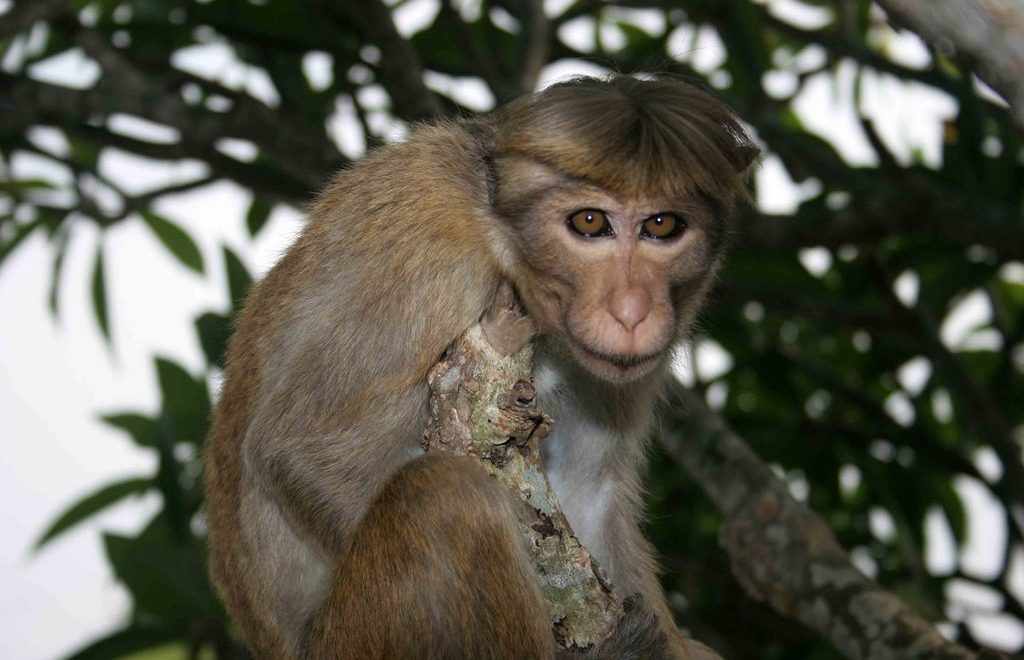
The toque macaque (macaca sinica), which owes its name to the tuft of hair on its head, is a cunning, thieving little monkey often seen near temples or in parks. Not very shy, always on the lookout for food, it will watch you out of the corner of its eye and will not hesitate to dip its hand into your bag if it is left open?
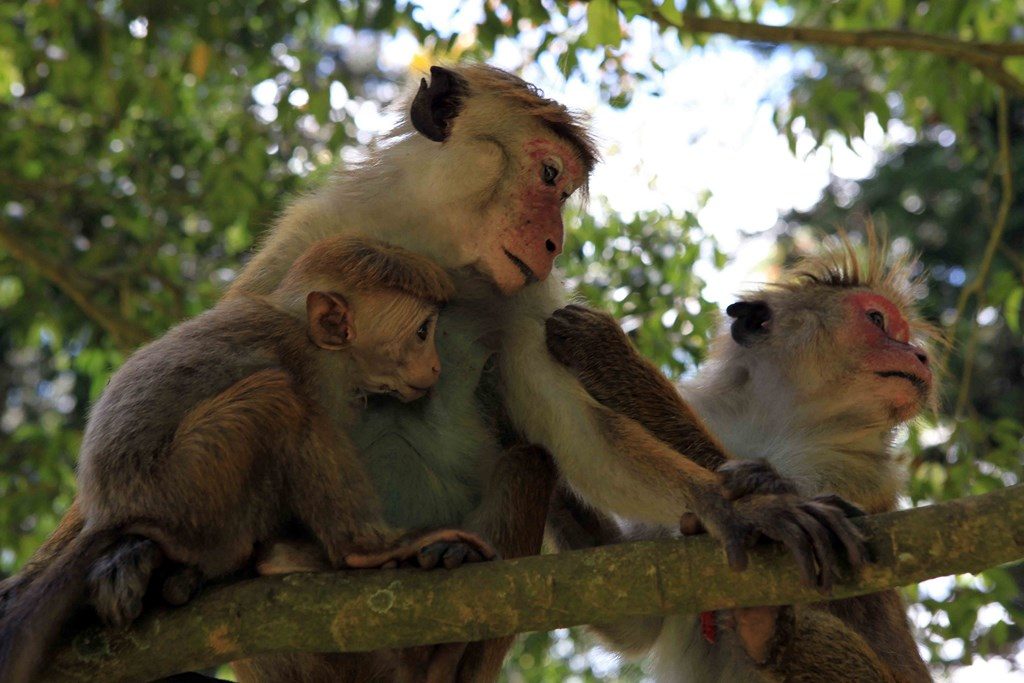
This primate, found only in Sri Lanka, is a highly intelligent and endearing monkey that lives in groups of around thirty individuals, with highly hierarchical intra-group relationships that the Sri Lankans compare to the caste system in India.
A dominant male leads the whole clan from the top of his tree, while "soldiers" fight and defend the group in the event of an attack, and servants collect the food. The lower the monkeys are in the tree, the lower they are in the hierarchy?
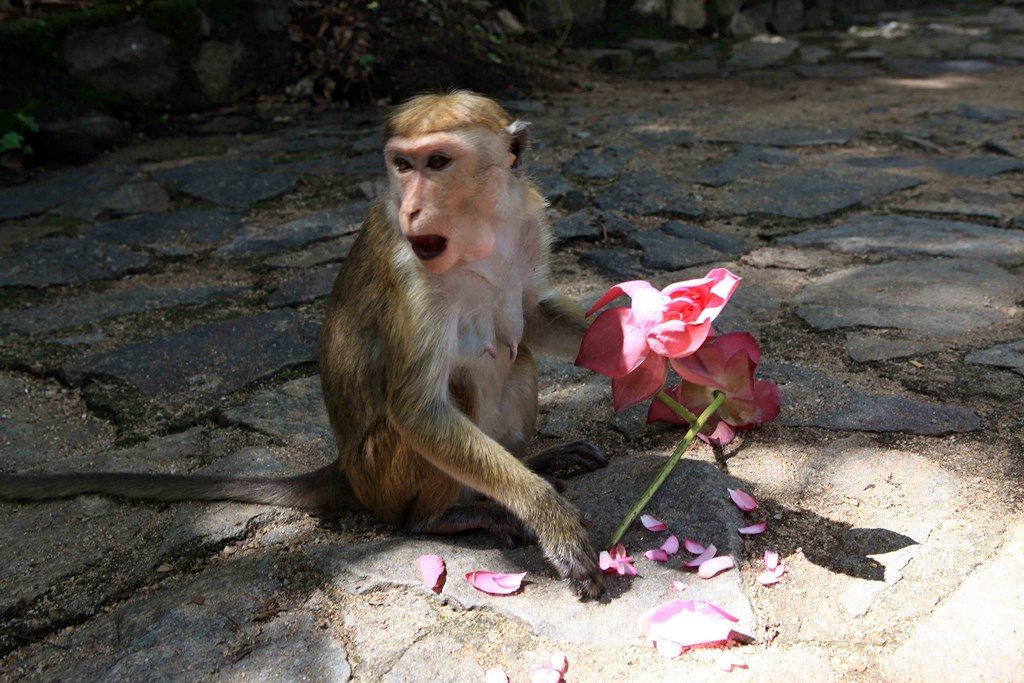
A macaque has managed to steal a lotus flower and is about to eat it.
For some decades now, the toque macaques have been threatened by the shrinking of their natural habitat and by animal trafficking. Their population has halved in less than 40 years. This is also one of the reasons why they are moving ever closer to urban areas and temples, where tourists and worshippers feed them.
The lower-ranking macaques don?t hesitate to roam in groups through villagers? homes and gardens, rummaging through rubbish bins or stealing eggs from chicken coops. This is the price of survival for those born at the bottom of the ladder?
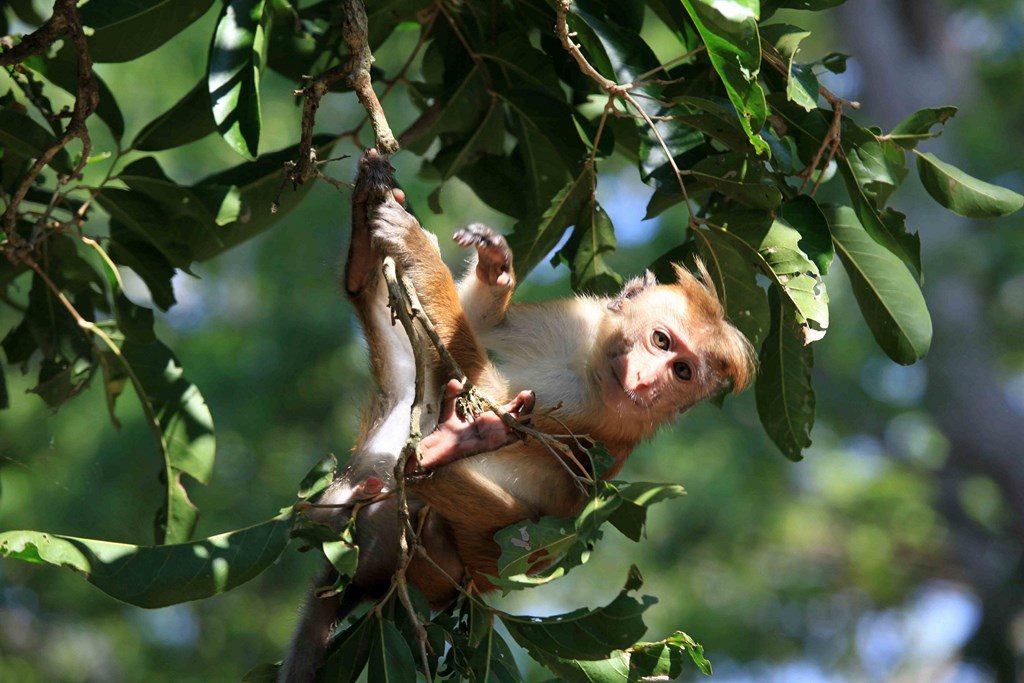
Equally at ease on the ground or in the branches, the macaque is a virtuoso acrobat who doesn?t hesitate to dive into lakes to collect the water lily seeds he feasts on.
Very tender and protective of their young, females are devoted to a single male.

Females nurse their babies for 6 to 8 months.
They have faces of varying shades of red, smoky eyes that look like they've been highlighted with kohl, and black ears. And while the bowl haircut may have ruined the childhood of many boys, it seems to suit these adorable simians, who wax their hair as a family.
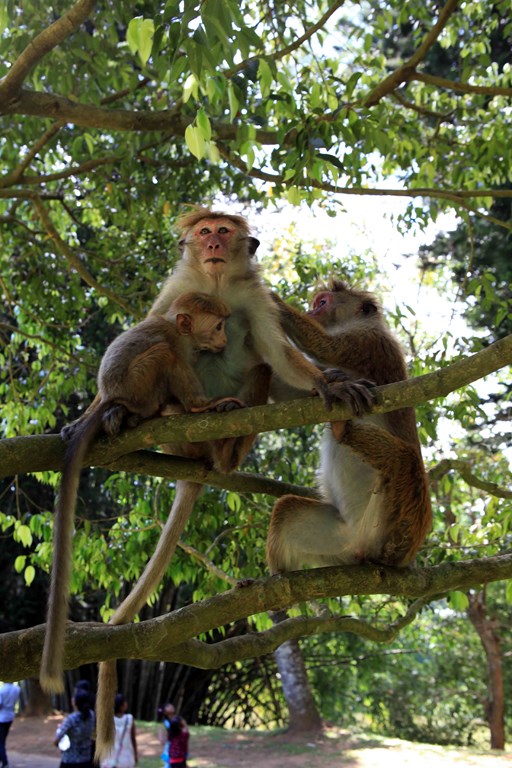
Delousing helps to strengthen the bonds between members of the group.
Like all primates, macaques avoid eye contact with humans or their congeners and systematically look away, eye-to-eye contact always being a signal of attack. However, they observe each other at an angle and are attentive to the movements of other members of the group.

This mother allows herself to be approached but carefully avoids looking at the camera.
Respected by humans, who they approach readily, monkeys are regarded as sentient beings in Sri Lanka, and offerings of fruit and flowers are made to them by devotees visiting the temples. Let's not forget that in the Ramayana epic, it is an army of monkeys (macaques led by Hanuman) that deliver the princess Sita, held captive by the demon Ravana!
Text and Photos: Brigitte Postel






Hello,
Thank you for this very interesting article. Are macaques present in all the countries where there is a special reserve to visit?
Thank you
Nathalie
Caped macaques can be found all over the country, particularly in temples, but also in parks. If you go to Sri Lanka, you are sure to see them.